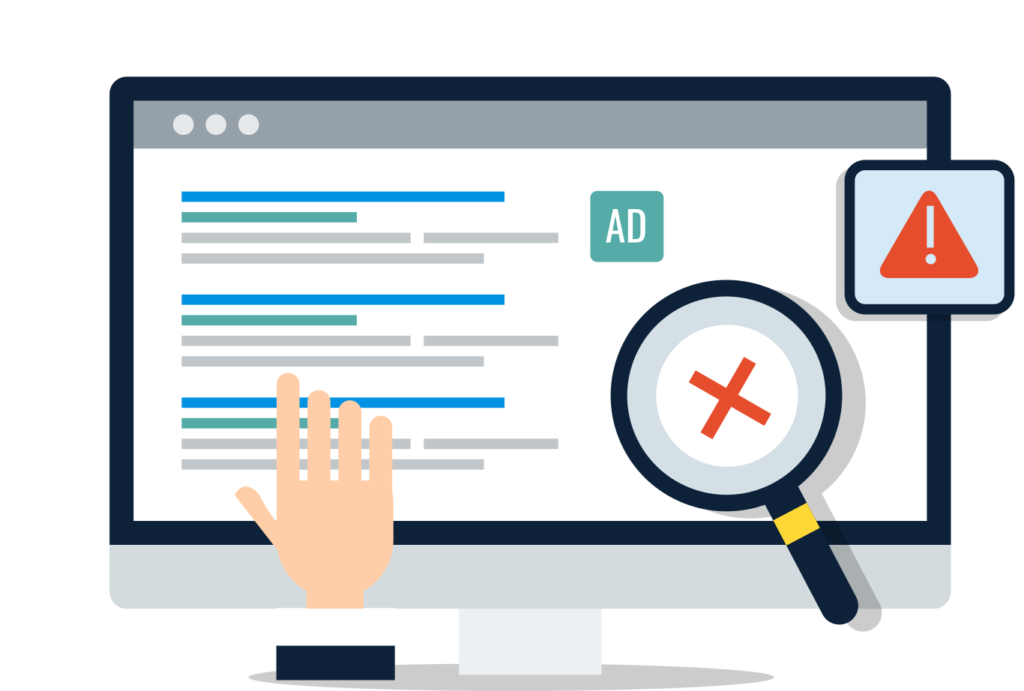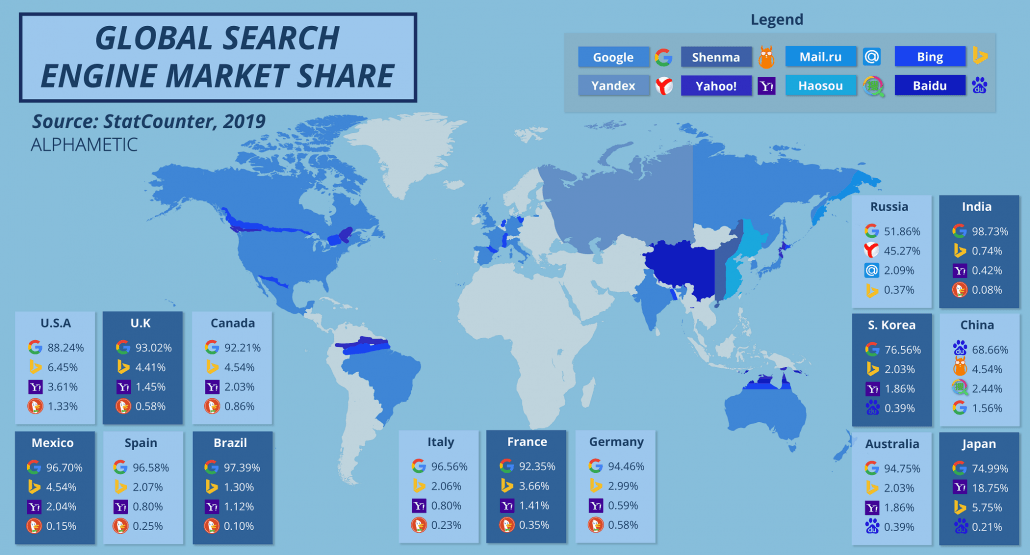Welcome to Spiralytics’ Ultimate SEO Resource! Use the jump links below to skip to a section.
As technology continues to evolve, more people grow reliant on online platforms as their source of information, news, business, and entertainment. This became more evident during the pandemic, when businesses quickly needed to shift to online operations, drastically changing the digital landscape as we know it.
By taking advantage of different online platforms, your company can increase its number of marketing channels, allowing it to grow more quickly. But for your brand to be successful, you need to build an effective marketing strategy. This will help you establish a strong online presence and rank higher on search engines.
While there are a lot of different tools and strategies you can use, properly addressing search engine optimization (SEO) can be a big step forward.
What is SEO?
Search engine optimization (SEO) is a process that allows you to boost the organic traffic of your website by improving its ranking and visibility on search engines. This will help your audience find helpful links to your brand more effectively, which can boost traffic and overall performance.
Previously, SEO was lumped together with search engine marketing (SEM). But as their roles were more defined, it has since changed in scope, techniques, and prime focus.
How SEO works:
SEO strategies work by understanding how search engines and their algorithms assign your website a score and ranking against other sites in a given set of keywords. Depending on your page’s performance, your ranking will reflect how much exposure you get for specific search queries.
In general, page scores are determined by multiple factors, including the quality, authority, and trust you build with your content. With the right combination of SEO strategy and efficient link building, you can effectively boost your rankings and reach the top spots in search results for your target keywords.
A Brief History of Search Engine Optimization

1993 – The history of SEO began when Archie, an FTP indexer, was launched. This would later evolve to be the search engine Excite. Many refer to this as the world’s first search engine, while others emerged one year later, in 1994.
1996 – Larry Page and Sergey Brin began to develop Backrub, a new search engine that would assign ranks to websites based on popularity and inbound link relevance. Backrub, later on, evolved to become Google in 1998.
2000 – Keyword stuffing and link spamming were the norms. For instance, if a website wanted to outrank another that used keywords 100 times, it could do so by repeating the same keyword 150 times. Google developed guidelines for webmasters to follow, but it was mostly ignored. Algorithms haven’t incorporated said instructions at this point.
2003 – Google’s Florida algorithm update changed the game. It was the first instance where websites that used keyword stuffing tactics were penalized, and their page rankings went down. Conversely, those who have been providing quality content were recognized and ranked up.
2004 – Google’s reign over the search market share peaked at 84.7% of all searches. They also launched a personalized search, which used a person’s search history to give them relevant results.
2005 – Google, Yahoo, and MSN united with the emergence of the No-Follow attribute. Its goal was to decrease spam links and comments on blogs. This was also the year Google launched Google Analytics, which brands still heavily used today.
2008 – Google improved its Quality Score computations, which more accurately ranked websites.
2009 – Bing was launched. Yahoo and Microsoft partnered up to market this new search engine as one that produces better results than Google.
2009 – Google released the real-time search function, which shows results like tweets and breaking news at the top of the page.
2010 – Google Instant was rolled out, which predicts suggestions of what you will type.
2011 to Present – Search has become the main way people interact with the Internet, so businesses developed technologies to improve the experience. New SEO terms began emerging as systems started evolving. Schema markup was introduced in 2011, allowing search engines to show enhanced featured snippets and structured data.
From then on, Google began regularly releasing updates to their search engine, starting with Panda, which aimed to protect the system from content farms exploiting their algorithm.
As mobile devices and artificial intelligence (AI) became technological staples in modern society, search engines like Google search engine optimization kept improving to fit new user expectations. This included prioritizing responsive websites, uncovering and blocking black hat SEO tactics, and focusing more on websites’ expertise, authority, and trustworthiness (E-A-T).
Around these times, more people began asking, “What is SEO marketing?” or “What is search engine optimization?” Eventually, marketers and webmasters began establishing SEO marketing definitions and SEO principles, like keyword research or writing for users, that is standard for any SEO for beginners course today.
The Importance of SEO for Businesses

Optimizing your website for search engines offers your business and your customers a range of benefits. Not only will prospects be able to find your brand more easily, but you’ll also be driving things like brand awareness, online authority, and trust.
- Increases search engine results page (SERP) position: The top position of Google is one of the most coveted pieces of digital real estate among marketers since it generates a 39.8% clickthrough rate. In contrast, the second position generates only 18.7%. So, one of the benefits of SEO is that it helps you get to that top-ranking spot organically.
- Improves traffic and click quality: The organic traffic you get from ranking high on search engines is invaluable to your business. Seven in 10 marketers (70%) believe that SEO gives them more value since it generates sales and is entirely free, unlike their pay-per-click campaigns, whose lifespan depends on limited budgets.
- Develops your brand online: Ranking on the first page of a search engine as large as Google will help you generate massive brand awareness. According to a Backlinko study, less than 1% of users click on anything on the second page of Google, emphasizing just how important it is to get to the first page.
- Allows you to gather customer data: Part of your success with content SEO hinges on your keyword research. The keywords you uncover can indicate user intent, allowing you to learn what your audience is searching for, which will help you better optimize your content. It’s also a key value of SEO since knowing more about your customers will always give you an advantage over your competitors.
- Boosts your local business: According to BrightLocal, almost all searchers (98%) read online reviews about local businesses, meaning your digital presence shouldn’t be an afterthought. Optimizing your site for customers searching for businesses near them can help you gain more customers and generate more leads.
To say that SEO is critical for your business is an understatement. Learn more reasons why you should have a robust SEO strategy with this insightful read: The Importance of Embracing Modern SEO Best Practices.
Search Market Overview
The search market is becoming increasingly important as roughly 175 new websites are created every minute. Experts forecast that the market will be worth an estimated $348.8 billion by 2028 as more businesses and countries develop their own search engines.
Although more search engines are emerging, Google remains dominant in many Southeast Asian countries. In January 2023, Google had a 95% market share in the Philippine search engine market. With Google being one of the most popular search engines, it has become the de facto search engine SEO experts need to optimize for.
As more marketers focus on SEO tactics, it can be shown that both local and organic rankings significantly influence the performance of your link building strategy. This urges practitioners to focus on delivering relevant and highly-specific content to their target audience.
SEO trends you can expect to see:
As the market continues to grow, businesses have been discovering innovative ways to enhance the search experience for their audiences. Below are a few SEO statistics and search trends you can expect to see in the coming years.
- Greater focus on mobile-first indexing: More than half (58%) of global web traffic comes from mobile devices, and it’s been on an upward trend for the past few years. Mobile access to the Internet has become so significant that Google announced in 2020 it would do mobile-first indexing for the whole Internet.
In other words, Google will prefer to crawl the mobile version of your site over the desktop version, so part of SEO best practices is that you optimize it for the smaller form factor.
- More optimized user experiences: Google considers your website’s page experience part of their Core Web Vitals when ranking them on a SERP.
For websites to remain competitive in the coming months, search engine optimization experts ensure their user experiences keep up with people’s changing expectations. This includes having the appropriate security certificates, optimizing for mobile and desktop, and designing simple website navigation.
- Higher voice search usage: Google continues emphasizing accessibility with their search engine through voice search. In their 2021 Voice Playbook, they share insights about how voice search is becoming increasingly popular, especially to help people who struggle with literacy and typing in scripted language, such as Hindi.
- Increased reliance on AI: In 2023, Google launched their own chat-based AI, Bard, powered by their LaMDA language learning model. Experts forecast that it, and competitor AI models such as Microsoft’s Bing AI, will disrupt and supercharge the search market, with AI-generated SEO results having the potential to rank as much as human-generated content.
Trends come and go, but some of them will stick enough to reshape the state of SEO. Take a peek at SEO Trends to Look Out for in 2019 and beyond.
Important Google Algorithm Updates to Know About

-
Panda
Released: February 2011
Penalties: Thin content, plagiarized posts
This update clipped the rankings of websites that released low-quality or “thin” content that didn’t give any real value to visitors. Conversely, sites that produced unique and relevant pieces were rewarded and ranked better.
-
Penguin
Released: April 2012
Focus: Black hat link building techniques, irrelevant/spammy links
The Penguin update was monumental in stopping black hat SEO practices, which were rampant during this time. It was first known as the “webspam algorithm update” and made SEO practitioners reevaluate how to gain quality links without cheating their link building tactics.
-
Hummingbird
Released: August 2013
Focus: Keyword stuffing, low-quality content
Hummingbird is one of Google’s smartest updates as it revolves around interpreting search queries. It matches results with the searcher’s intent other than the keywords on the page. This isn’t to say that keywords aren’t relevant—it merely gave SEO practitioners a broader field to play with when it comes to keyword research.
-
Pigeon
Released: July 2014
Focus: Localized search results, on-page, and off-page SEO
Pigeon only affects English search results. It places huge importance on local search results, so your business can appear if a location-specific query is typed in. The update allowed Google Web Search and Google Maps to work together cohesively.
-
Mobile Friendly
Released: April 2015
Focus: Mobile usability, mobile friendliness of a page
Google brings mobile-friendly websites into the spotlight. Optimized web pages for mobile rank higher in SERPs, while those that deliver poor mobile performance get down-ranked. The Mobile Friendly update affects the individual pages of a website. That means if you only have one mobile-friendly page, its rank could be improved, but the rest of your pages may not.
-
RankBrain
Released: October 2015
Focus: Relevancy of search results, machine learning
According to Google, RankBrain is the third most important web ranking factor. It’s a machine learning system that helps the search engine understand search intent and meanings behind queries, which leads to more relevant results.
-
Possum
Released: September 2016
Focus: Location-targeted results based on the searcher’s location
The closer a user is to your business address, the more likely they will see it among the top results. This allowed for accurate answers to specific queries, including the search phrase “near me.” Possum also highlighted businesses outside the actual city area.
-
Fred
Released: March 2017
Focus: Low-quality content, ads, affiliate links
Fred sanctions thin, low-quality content that seems to have been generated for heavy promotions and contains many affiliate links. It also aims to stop the black hat SEO practice of buying paid links for link building purposes.
-
Medic
Released: May 2018
Focus: Your Money, Your Life (YMYL) content
YMYL content involves topics or pages that have the potential to influence a person’s health, finances, and happiness. Given how impactful this kind of content could be to a person’s life, Google’s Medic update aimed to improve the rankings of websites with high E-A-T (expertise, authority, and trustworthiness) scores and reduce ones with lower E-A-T scores.
-
Bert
Released: October 2019
Focus: Search queries
BERT stands for Bidirectional Encoder Representations from Transformers and is a natural language processing, a deep learning algorithm that Google developed to understand user intent and queries much better. It meant that SEO professionals needed to publish even more focused and well-organized for the algorithm to appropriately consider it a valid response to a user’s query.
-
Core Updates
Released: Started in 2020
Focus: Overall search engine performance
Google will occasionally push core updates to their search engine algorithms to ensure that their systems deliver reliable results for their users. While pages already ranking well won’t be affected, some under-rewarded but updated content that may provide better value will have the chance to perform better in SERPs after the update.
Whether you offer SEO expert services or you’re still learning SEO, it’s important to keep up with the latest Google algorithm updates to keep your skills and knowledge updated.
Check out this Moz resource for a complete list of Google algorithm changes.
Google Algorithms & SEO: The Yin-Yang of Digital Marketing
The famous Google algorithm is known for helping all users find exactly what they want through search. While the company itself does not provide much in-depth explanation of how it works, it has given us an idea of what determines your search results. This includes the type of search intent, the usability and relevance of the page, and the settings associated with the user doing the search.
Google updates its algorithm regularly to keep things running smoothly, where changes can vary from small to largely noticeable. In terms of SEO, websites can take major traffic hits where keyword rankings can fluctuate.
How Is Local SEO Different from Standard SEO?
Local SEO involves searches that use a geographical factor to help give you relevant results. For example, if you use a keyword with a location, the search engine will know that your search requires local intent. Compared to standard SEO, local gives you better chances of connecting to searches in your desired area.
When it comes to growing your business, using standard SEO can help improve your website’s overall visibility on a national scale. But incorporating a hybrid technique between local and standard SEO can also be more beneficial for a more targeted approach.
- Optimize your Google My Business profile: An optimized My Business profile will make your local business appear more credible and trustworthy. Ensuring your business is verified, your contact information and photos are updated, and you’ve replied to each customer review will help you grow your local business’s online presence.
- Encourage users to write reviews: With BrightLocal reporting that almost everyone reads reviews of online businesses, it helps to have past customers share their experience with your brand online. You can make asking for a review a standard practice for your processes after you fulfill an order.
- Optimize your website: Use high-quality photos with small file sizes to help your site load faster and ensure that your site fits well for mobile screens. You can also use free SEO tools like Ahrefs or Answer the Public to discover keywords you can rank for. Then, implement those in your content and around your website.
- Get backlinks: A big part of how SEO works is having other sites link back to you. Participate in your local community or partner with other businesses to allow more users to link back to your site. The backlinks tell Google search algorithms that your site is credible and will help you rank much higher.
- Create relevant content: Optimized content relevant to your target customers will help you drive organic traffic to your site. Use social listening tools like Sprout Social and Hootsuite and free keyword research tools like Ahrefs to find opportunities your business can tap into, such as trending topics or the latest pop culture news.
International SEO: Climbing SERPs Overseas
International SEO involves getting search engines from other countries to find and rank your website on their local SERPs. Although search engines like Google give users local results based on their geographical information, marketers using international SEO strategies will place tags at the back end of their content to let search engines know the content is available in other languages.
Developing an international SEO strategy is crucial to expanding your business to overseas markets. Below are the steps to build an international SEO strategy.
- Gauge your international success: Use free SEO tools like link explorers and Google Analytics to see how your business ranks in foreign SERPs. Not only will this let you know how known your business is overseas, but it also helps you understand what other keywords people search for, giving you a glimpse of the competitive landscape.
- Do international keyword research: Keyword research is a part of SEO fundamentals, regardless of where you’re operating. Use tools such as SEMrush or Google Keyword Planner to help you find keywords relevant to your foreign audience. If you plan to expand to a country with a different language, an insightful practice is to translate your content and see how they rank. You may find a new batch of keywords you wouldn’t have expected to reach such a high volume.
- Use the appropriate content tags and site structures: For your international SEO strategy to work, you must place the hreflang tag in the <head> portion of your site’s HTML. It’s also important to have the right country code top-level domain (ccTLD) to indicate to users what language or country your site is in. For example, if your website is in France, your domain would be Website.fr.
- Localize your content: One of the best search optimization tips for international SEO management is to localize your content. Some ways to localize your content include using the appropriate currency and spelling. For instance, if you’re writing about website optimization but publish your content in a Commonwealth country, you’ll need to spell it as “website optimisation,” so your content doesn’t look out of place. You may also need to work with a professional translator to translate your content while painting your brand’s personality.
- Segment your customers based on language: If you’re selling the same products to customers of different nationalities and locations, you can segment your audience based on their location and language information. This will help you streamline your process and organize your digital marketing efforts better.
Technical SEO: Polishing Under the Hood
Technical SEO involves everything you do on your site aside from creating content to make search engines find and crawl your website much easier. This includes improving your site’s loading speed, structuring your site in an easily crawlable way, and ensuring the correct pages are ready for indexing.
It has several elements you need to be aware of, such as the following:
- Your site’s structure: A flat structure is ideal for keeping your site’s content organized logically, where your homepage sits at the very top, enabling users to visit every site page. Once you’ve structured your site, you’ll have to submit a sitemap as a guide for Google to crawl your site.
- Your site’s content: SEO content writing involves more than just writing blog articles for your page on SERPs. Deleting duplicates, connecting orphan pages, and using internal links are ways to improve your site’s content and navigation.
- Your site’s performance: How fast your website loads is crucial not only to the user experience but also to your search engine rankings. A few ways to improve your site speed include replacing images with ones that have smaller file sizes and using a high-quality, performance-focused host to run your website.
- Your site’s security: An Secure Sockets Layer (SSL) certificate is important to ensure your site is secure and protected from cyberattacks. Work with your developer and web hosting provider to make your site as secure as possible to protect your and your customer’s data.
- Your site’s mobile responsiveness: An overlooked indicator of good SEO vs. bad SEO is how optimized a site is for smartphones. Given Google’s mobile-first indexing approach, your website’s mobile version must also be optimized. Use a responsive layout that automatically rearranges your site’s content to fit the smaller screen and check your site is optimized through Google’s Mobile-Friendly Test tool.
On-Page SEO: Staying Relevant to Your Readers
On-page SEO involves optimizing your site’s content for search engines. The differences between on-page and technical aren’t always very clear; there’s often an overlap in the responsibilities of the two. Just know that both focus on ranking your site on search engines as fast and efficiently as possible.
If you’re still learning how to do SEO, here are a few tips you can follow to improve your SEO plan:
- Create highly optimized content: Your content not only needs to include high-volume and relevant keywords, but best practices for SEO also include having external and internal linking for SEO and an enticing meta description. These improvements don’t only serve search engines but can improve the user’s overall experience while consuming content from your site.
- Follow a keyword strategy: When creating your content, you shouldn’t just include keywords just for the sake of it. Google penalizes these practices, known as “keyword stuffing.” A better keyword strategy includes identifying specific keywords, the user intent behind them, and creating content for them depending on which stage of the customer journey your audience is at.
- Create attention-grabbing meta descriptions: Meta descriptions give users a glimpse of what the content of your page is about from the SERP. It’s where you get to flex your SEO copywriting skills. It’s best to include the keyword you’re targeting and keep its length no more than 160 characters to optimize it as much as possible.
- Structure your content appropriately: One of the SEO mistakes to avoid if you want to see the benefits of SEO for business is using the same paragraph styles per section of your blog articles. Subheading tags (H1, H2, H3, and so on) help organize your website’s content to follow a hierarchy. Writing descriptive subheadings is also important because it makes your content more skimmable for readers.
- Keep your URLs clean and simple: The URL is essentially the link to your website. Descriptive yet simple and easy-to-read URLs are much better to cater to a user’s needs. Use hyphens and include keywords. Let’s say you’re writing a listicle of the best vacuum cleaners of 2023. Instead of your URL being “https://website.com/best-vaccuum-cleaners-of-2023,” you can simplify it to https://website.com/vacuum-cleaners-2023.”
Off-Page SEO: Building Your Brand Around the Internet
Off-page SEO is the strategies you use outside your website to improve its rankings. How does that work? Google considers your website’s expertise, authority, and trustworthiness (E-A-T) when deciding your rank on the SERP. If other reputable websites are talking about and linking to your website, it boosts your brand’s E-A-T rating.
Your off-page SEO strategy matters just as much as your technical and on-page SEO strategies. Try the tips below to help you improve your off-page SEO strategy.
- Get backlinks: Link building is about acquiring backlinks to your website. The most popular way to build links is to reach out to relevant and authoritative websites and ask them to link back to your site, whether through a guest post, review, or any other arrangement. This will also help you build relationships and expand your network, which can benefit you as your company grows.
- Maximize local SEO: Your Google My Business profile, reviews, and social media links count towards making your website more credible to people and search engines. So, you can combine your off-page and local SEO strategies to boost your business’s online presence further.
- Publish press releases: Press releases generate interest in your business for various reasons, such as if you want to announce a product you’re launching or a partnership deal you’ve just closed. Journalists and publication websites tend to pick these stories up, increasing your brand mentions and awareness around the Internet.
- Become a source: Getting interviewed or invited to an event is an excellent way to build credibility for your brand and links to your website. It allows you to promote your brand to an entirely new audience and lets search engines see you as a trustworthy authority on the subject.
- Create shareable visuals: Infographics and data visualizations are easily shareable assets that other brands can use to link back to you. So, if you’ve discovered a statistic through firsthand research, don’t just write about it. Create an easy-to-understand visual to drive your point home.
| Technical SEO | On-Page SEO | Off-Page SEO | |
| Focus | Optimizing website structure | Optimizing website content | Building authority and credibility online |
| Examples | Site structure, speed, security, mobile responsiveness | Content optimization, keyword strategy, meta descriptions, structured content, URL structure | Backlink acquisition, local SEO, press releases, becoming a source, shareable visuals |
| Goal | Enhancing search engine visibility and crawlability | Improving relevance and user experience | Establishing brand authority and trust |
| Impact | Helps search engines find and understand your website | Increases visibility and ranking on search engine results pages | Boosts brand reputation and rankings |
| Techniques | – Site structure optimization – Sitemap submission – Site speed optimization – SSL implementation – Mobile optimization | – Keyword research – Optimized content creation – Meta tags optimization – Internal linking | – Link building – Local SEO optimization – Press release distribution – Becoming a source – Visual content creation |
Ecommerce SEO: Why it Matters to Your Online Store
eCommerce SEO is the process of optimizing your website for search engines. According to McKinsey & Company, eCommerce’s retail sales shares reached 20% in 2021 from 5% in 2016, meaning it’s a quickly growing industry. But it also means competition is even greater, and generating traffic to your online store is even tougher.
This is why SEO is important. Through the right eCommerce SEO strategies, you can get your product pages to climb to the top of SERPs to drive more customers to your online store. These strategies will focus on your on-page, off-page, and technical SEO strategies. You can gather data and feedback from past customers to learn more about what they were searching for to inform your future digital marketing strategies.
Voice SEO: You Need to Hear This
Voice SEO is optimizing your websites for voice assistants running search queries. More people are becoming comfortable using voice search. Google’s 2021 Voice Playbook found that the technology helps make content more digestible and allows them to multitask easily.
The primary difference between voice search SEO and other search optimization strategies is that keywords tend to be more conversational for the former. For instance, if you’re talking to a voice assistant, you may say, “Do you know any good Thai restaurants around the area?” The text version of the same user intent may be as simple as “Thai restaurant near me.”
Creating your content with a more conversational tone is important to optimize it for voice SEO. Additionally, target to get the featured snippet on SERPs since voice assistants typically use that as the basis for their response to user queries.
Good vs. Bad SEO Strategies

Black hat SEO is search optimization that goes against SEO guidelines. These include keyword stuffing, spam directories, and publishing duplicate content.
While marketers may have been able to exploit the loopholes in previous iterations of Google’s algorithms, the company has since updated its systems to be better at preventing and penalizing these practices. Penalties cover severely lowering your site’s search ranking and can escalate to being banned from the search engine altogether, forcing you to miss out on the benefits of search engine optimization.
Other black hat SEO examples you should be aware of include the following:
- Lack of on-page optimization on web pages
- Delivering poor user experience in general
- Spinning or plagiarizing content
- Buying paid links as a shortcut for link building
- Spamming comment sections with links
In contrast to black hat SEO, white hat SEO is the practice of improving your search rankings through legal means. While gaining higher search engine rankings through white hat tactics can take much longer, it will allow your business to maintain a good reputation among users and search engines.
Some white hat strategies you can follow include the following:
- Picking the right keywords to maximize audience targeting efforts
- Structuring search engine-friendly URLs
- Creating highly linkable and valuable content
- Delivering fantastic UX for visitors
- Performing regular SEO audits to maintain and improve standing
White hat SEO and black hat SEO are some key concepts to understand to ensure your business uses search engine optimization legally.
There’s no choice to make when it comes to determining which strategy you should practice. Check this out to learn more about white hat and black hat SEO and the different penalties you can incur: Good vs. Bad SEO: How to Not Get Penalized.
The Role of Content in SEO

Content and SEO are two peas in a pod. Your web content is what your SEO efforts will point to, so they must be well-researched and purposeful. Be intentional when interweaving your content marketing and SEO tactics to maximize positive results.
- Creating customer-centric content that is always relevant and beneficial to your reader will encourage them to keep coming back to your website for more. This will also establish your authority and expertise in your industry, building trust and credibility.
- Incorporating the right keywords in your blog posts and web pages will aid your target audience in finding your company in relevant scenarios.
- Placing internal links encourages your readers to browse your website and discover more information about your brand and how they can benefit from what you offer.
- Don’t forget the SEO basics: Filling up your meta description, title tags, and image alt texts helps search engines index and present your web page on search engines better.
Get a deeper understanding of how content marketing plays a critical role in your SEO strategy by visiting our post: How to Improve Your Search Rankings with Content Marketing.
Understanding Link Building

Link building is the not-so-secret weapon to a successful SEO strategy. In a nutshell, it’s the process of getting other respectable websites to link to your site, webpage, or blog post. Ultimately, the more backlinks you have, the more your business is exposed to a broader audience. It also builds your online reputation, as it is unlikely for you to amass those links if your content isn’t valuable or linkable.
Search engines use links for two reasons:
- Discovering new websites
- Determining the ranking of a website
Links have long been a critical component in Google’s ranking system, but it wasn’t until the Penguin algorithm update that unethical link building practices were penalized. Now, you must prove that your website is worth linking to—and there’s no better way to do this than by creating high-quality content in the first place.
There are so many ways to approach link building, but we know the secret to doing it the right way. Learn our tricks of the trade here: How to Approach Link Building the “Right” Way.
6 Steps to an Effective SEO Strategy

1. Keyword Research
Doing your research is an essential step to boosting your SEO strategy. Without correctly understanding the keywords and search intent, you can’t fully optimize your content based on what users want to see. This could result in fewer clicks and a low overall ranking.
Keyword research may sound simple, but there’s an art to this strategy. Learn how to perform useful keyword research here: SEO Guide Stage 1: Keyword Research.
2. Analyze the competition
Studying your competitors’ methods can give you a lot of insight into what you could be doing better. Looking at the type of keywords, backlinks, and content they put out can determine your strongest and weakest areas in comparison. This can help you make adjustments to your strategy and get ahead on new things your competitors have yet to try.
Visit this article to develop the skill of thorough competitor benchmarking: SEO Guide Stage 2: Competitor Analysis.
3. SEO Audit
SEO audits help you determine if you’re on track with optimization best practices. Because Google regularly updates its algorithm and new SEO trends may emerge, it is crucial to perform an audit on your site to ensure all optimization issues, such as technical and on-page issues, are addressed.
Learn how to perform a complete SEO audit for your website with our comprehensive tutorial: SEO Guide Stage 3: SEO Audit.
4. Website optimization
Improving your website design can play a huge role in your SEO strategy. Apart from the visual aspects of your pages, structure, and formatting are also crucial for optimization and better UI/UX. This includes updating content regularly, changing the meta tags, H tags, and title tags, and making sure it’s easy to navigate in and around the website, among others.
Check if you satisfy all of the on-page and off-page SEO ranking factors here: SEO Guide Stage 5: Off-Page Optimization and SEO Guide Stage 5: Off-Page Optimization.
5. Link Building
Apart from improving the front end of your site, it’s important to work on your link building strategies. By building links on authoritative sites, you can get more traffic to your own site, helping you rank in SERPs. Moreover, the traffic can get you recognized as a trusted source.
6. Progress analysis
Using SEO strategies means being ready to change your approach whenever necessary. This means that you will need to keep track of your progress and analyze your performance on a regular basis. Once you’ve identified what still works and what doesn’t, you can make the necessary adjustments to improve your strategies and rank better.
Analyzing metrics can get overwhelming in the beginning, especially if you’re unsure where to start. We pooled a list of essential parameters you need to keep your eye on. Take a look at them here: SEO Guide Stage 6: Tracking & Analyzing.
SEO Mistakes to Avoid

1. Slow websites
No one wants to waste their time waiting for a page to fully load on their browser. If you wish to rank better on search engines, you need to optimize your site speed and improve user experience on your platform.
2. Ranking for the wrong keywords
Keyword stuffing is one thing, but you should never forget to do your research on effective keywords before you start creating content. This will not only help you rank better on search engines, but it will also boost your SEO game.
3. Uninteresting content
Users crave interesting and worthwhile content that caters to their line of interests. If you can’t hook them in within the first few sentences, then it is time to rethink your approach and find more ways to keep them engaged.
4. Forgetting about mobile users
The use of smartphones and tablets is becoming more popular by the day. If you neglect to optimize your site for these devices, you can lose out on valuable clicks that will reflect your rankings.
5. Missing details
Failure to do thorough research on your topic can hurt your chances of becoming a reliable source for users. If you want to avoid low rankings, ensure that you are giving out all the necessary information that users are looking for.
Understand why these practices can ruin your SEO strategy: The 3 Most Unforgivable SEO Mistakes Businesses Make
Free Tools for SEO

Google Analytics
Google Analytics continues to be one of the best free SEO tools out there. It has an extensive list of features that helps you figure out what exactly is going on with your site at all times. This includes knowing your users, how they find your site, and how they interact with your content.
Google Search Console
If you’re interested in how to learn SEO, a great way to see firsthand how search engines work and what goes on behind the scenes is through Google Search Console. This tool gives you that exact preview, allowing you to manage your site to help you rank higher on SERPs.
It’s a free SEO tool to monitor key site metrics such as clicks, impressions, clickthrough rates (CTR), and more. The data you gather from Google Search Console can help inform which strategies to use to further improve your digital marketing efforts.
Google Keyword Planner
Google Keyword Planner lets you learn about keyword popularity, which ones you can use, estimate the bid price per keyword, and develop your SEO strategy. It’s become an integral tool for many marketers doing keyword research. It’s also an essential tool if you’re still learning how to do keyword research.
SEMrush
Many marketers deem SEMrush the gold standard for helping them with their digital marketing tasks. The platform provides numerous SEO resources, features, and tools, from SEO keyword research and competitor website analysis to social media management and website monetization. It can serve as your core platform to direct and control your digital marketing efforts and as a website ranking checker to monitor how your site is performing.
Moz
Moz was one of the first brands to offer search engine optimization services, giving them immense credibility, authority, and expertise in the space.
Their core product, Moz Pro, allows you to understand your website visitors and customers at a much deeper level, as well as track your website ranking, crawl and audit your site, and find link opportunities, to name a few. They also have content to help you learn SEO if you’re new to the practice.
Majestic
If you’re working on your off-page SEO strategies, you can’t ignore Majestic. The business primarily allows you to track backlinks to your site, which is an excellent tool for link building efforts. They also have a suite of SEO tools that present your backlink profile, complete trust flow, and citation flow indicators.
Link Explorer
Link explorers are free SEO tools enabling you to analyze a URL. It’s an essential tool for your competitive and market research since it helps you understand key data, such as how your competitors are doing, what keywords they’re ranking for, and how authoritative their domain is. It will also help you audit your site to review and measure how you compare to others.
Brands such as Moz and Ahrefs have reliable link explorers for your digital marketing strategies.
Sitebulb
For a more in-depth look at how certain sites perform on search engines, you can use Sitebulb. It helps you audit websites to learn more about them from an SEO perspective and develop a competitive keyword research guide.
It crawls websites to find possible broken links, understand their architecture, and generate reports that help you uncover insights about their pages.
Keywords Everywhere
This free SEO tool can help you discover keywords best related to your content on different online platforms. Keywords Everywhere also gives you related keywords that may help you structure your content better and perhaps provide more answers to search queries. It’s also got a lot of other features that can help you with your meta descriptions, title, and other contents of your page.
Screaming Frog SEO Spider
Apart from its name, Screaming Frog SEO Spider has several interesting features that can help you pinpoint your mistakes with your site through a thorough site audit. This includes assisting you in spotting duplicate content, broken pages, image problems, and many more.
NitroPack
NitroPack is a plugin that can help boost different aspects of your WordPress site. It also has additional features that allow you to increase your site speed to rank better on other search engines.
Ahrefs
Ahrefs is a classic SEO tool that most marketers will be familiar with. It also has many features that can help in competitor analysis, keyword search, and finding content gaps, among several others.
Explore more free tools and learn what’s so great about each in our roundup: Free SEO Tools for Startups, You’re Welcome
Boost Your business with SEO
SEO plays a vital role in any business running online operations. Without a proper understanding of these tactics, ranking well on search engines is going to be a lot more challenging. As a result, your business can struggle to grow its consumer base.
If you want to start implementing SEO tactics into your operations but don’t know how, Spiralytics offers professional SEO services that can help you boost your business.
For more information, contact us today!







